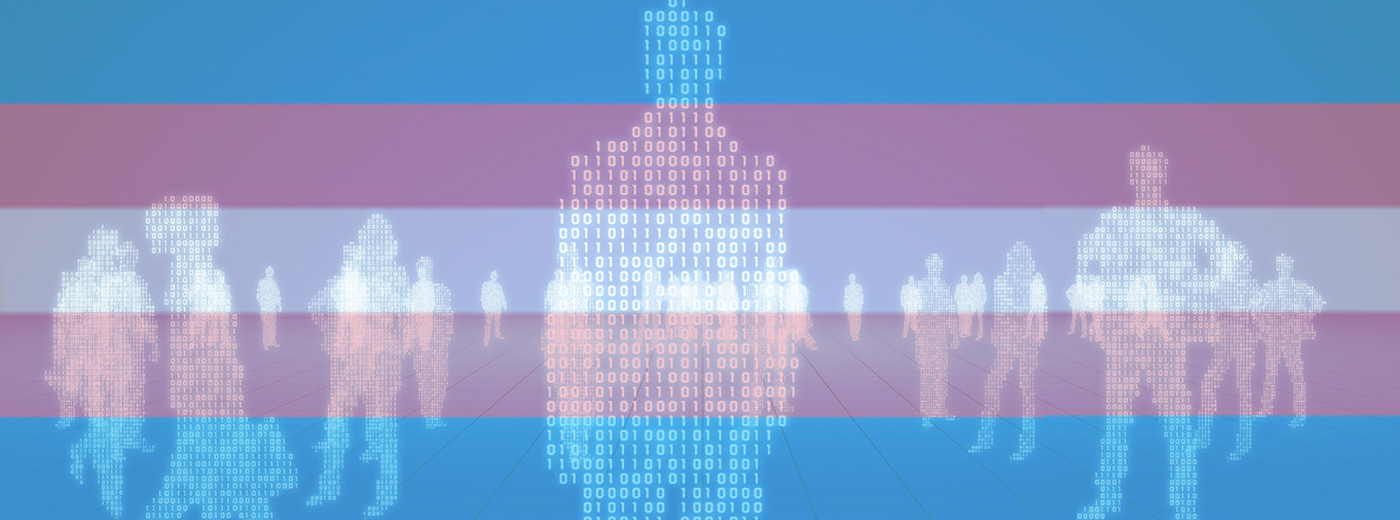For trans and gender diverse people in particular, who often access medical care in relation to their gender, and often experience other intersecting forms of stigma, it is important to know exactly what we may be opting in or out of.
Like so many other aspects of our lives, healthcare is increasingly being accessed and supported online. My Health Record, a system designed to keep track of your medical data, test results and prescriptions in one place, was announced in August 2017 to be rolling out nationally this year. By the end of 2018, every Australian will have a My Health Record generated for them – unless they choose to opt out.
Minister for Health Greg Hunt noted that the benefits included "reduced duplication of tests, better coordination of care for people with chronic and complex conditions, and better informed treatment decisions". For trans and gender diverse people in particular, who often access medical care in relation to their gender, and often experience other intersecting forms of stigma, it is important to know exactly what we may be opting in or out of.
My Health Record (MHR) acts as a hub, allowing healthcare providers to access information, and in doing so, provide a better and more aware standard of care to patients. Through the sharing of documents and data, this ensures that anyone from a regular GP to an emergency room has the most up-to-date medical history available. At the creation of your MHR, two years of past Medicare and PBS data will be added, unless you opt out of providing this in the sign-up process. Any information may be uploaded by a healthcare provider, but you may also request them to not upload a particular document and they are obliged to do as asked.
There are a number of options available to limit or remove access to your MHR, opt out of the service completely or cancel your participation. From 16 July to 15 October you can opt out at the My Health Record website, in which case a record will not be created for you at all. You are also, at any point, able to cancel your MHR. This means that while no new information will be added to your record, the information already included will remain. It is also possible to delete individual records and documents from your MHR, and they will no longer be accessible. You can also create a My Health Record after initially opting out during the July to October opt out period.
Additionally, a Record Access Code can be set up, which places a 4-8 digit passcode on any access of your account, and Limited Access Codes onto individual documents and information. This provides a layer of security between your information and health professionals, and allows you to choose on a case-by-case basis who has access to what information in your record.
There have also been concerns raised about the security of health data stored digitally, and it bears saying that no data is 100% secure. It is important to weigh up the value of having this information easily accessible – especially in cases of multiple medication or health interactions, or a lack of a regular health professional – with this risk.
The decision of whether to opt out of My Health Record is an individual one, and we recommend that you read through the My Health Record website and figure out what decisions are right for you. For individuals with particular health concerns or in communities with legislative barriers affecting health care, it is worth further exploring what this decision might mean for you. Positive Life NSW have developed a campaign, If in Doubt, Opt Out that provides further information specifically for people with HIV but may be helpful for other stigmatised communities, including trans and gender diverse people regardless of sero-status.
As trans and gender diverse people, especially those of us who engage in some form of medical transition or trans-related healthcare, having a record of the many medications, specialists and test results we interact with can be incredibly useful. Through the application of both a general Record Access Code and Limited Access Codes for specific sensitive documents or information, it seems possible to have a My Health Record while still retaining a reasonable level of privacy and peace of mind, the choice is yours and we support all LGBTIQ people and people with HIV to make informed decisions about their own healthcare.
- Trans and gender diverse community advocate, writer and sexual health nerd, Liz Duck-Chong worked with us to prepare trans and gender diverse communities for My Health Record.

